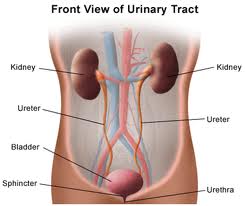A Urology Resident’s Perspective: From an interview with a urology resident from the University of Southern California (USC) Medical Center in Los Angeles, California.
Part of an interview series entitled, “Specialty Spotlights“, which asks medical students’ most burning questions to physicians of every specialty. See what doctors from every specialty had to say about why they chose their specialty and how to match in their residency.
- What attracted you to Urology?
Many factors attracted me to Urology…
1) Surgery – If you are interested in surgery then definitely consider urology. Urology has a very broad range of surgeries ranging from microsurgery to complex open abdominal cases with extensive reconstruction. If you are into technology, urology is often on the forefront of new surgical modalities such as robotic surgery.
2) Clinic – Many urologic issues are often dealt with in an outpatient clinic. There is definitely continuity of care as many urologic issues aren’t resolved with one clinic visit. Whether it is a patient with recurrent kidney stones that needs a metabolic work up, or a post surgical cystectomy patient for bladder cancer that you are surveying. Also many urologic procedures can also be done in an office setting such as cystoscopy, ureteral stent placement, vasectomy, prostate biopsies, plus much more.
3) People – Your work environment and colleagues are an important factor in choosing a specialty. Although it is a stereotype, it is often true; urologists are known to be fun, down to earth, and happy surgeons. Also, urology is a small field. You will find when you go on interviews, you will get to know the majority of your interviewing cohort by the end of the interviewing season. Similarly, most academic urologists know the other academic urologists across the whole country. Everyone is familiar with one another and this lends to a tight knit group of specialists.
4) Lifestyle/Flexibility – This is definitely a factor to consider when choosing a specialty. Not only are urologists relatively well compensated as it is a surgical specialty, the field also lends itself to a relatively nicer lifestyle if that is what you are looking for. Although training is rigorous, once you are practicing there are generally very few urologic emergencies. Urology also allows you to be flexible with how you want to practice. You could do very well practicing as a general urologist. You can also choose to sub-specialize by pursuing one of a number of fellowships. These include urologic oncology, endourology/stone disease, pediatric urology, transplant, reconstruction, female/neuro urology, minimally invasive surgery, and andrology/infetility.
- Describe a Urologist’s typical work day?
This can vary widely depending on if you are in academics or private practice, but in general urologists operative 2-3 days a week. The rest of the week is split between research and clinic.
- What type of lifestyle can a Urologist expect?
Few urologic emergencies lend to a nicer lifestyle for urologists. The field is flexible and you can generally choose to be as busy as you would like. Because it is a surgical field you can still expect relatively early mornings.
- What is the average salary of a Urologist?
See the excellent positings on this blog for average salaries. [Link from the Editor: The Ultimate Guide to Physician Salaries]
- What is the job market like for Urology?
In general, very good. Very few urologists are trained each year (approximately 270). This leads to a shorter supply for a growing field. Definitely keep in mind that in more desirable locations, jobs may be more difficult to find, and you will take a substantial pay cut than if you practiced in a more rural setting.
- What can you tell us about Urology Sub-specialties?
Urologic oncology – 1-3 extra years of fellowship (accredited vs non accredited). Lifestyle is more varied as your patients are, in general, more sick. Variety of surgery from robotics to massive abdominal surgery.
Endourology/stone disease – 1-2 years of fellowship. Master endscopic/percutaneous management of stone dsease.
Female urology – 1-2 years of fellowship. Nice lifestyle, very good job market as they are in high demand.
Neurourology – 1-2 years of fellowship. Urodynamic evaluation of patients with voiding disorders.
Infetility/Andrology – 1-2 years of fellowship. Very few fellowship spots available. Very nice lifestyle, more competitive job market.
Pediatrics – 2-3 years of fellowship. Also competitive job market especially for major cities.
Transplant – 1-2 years of renal transplant fellowship. Varied lifestyle depending on seniority/call schedule.
Reconstruction – 1-2 years of fellowship. Nice lifestyle.
- What are the potential downsides of Urology that students should be aware of?
It is not a field to go into if you are not into surgery. The surgical training is very rigorous. Most programs are 5-6 years in length, and you can expect early mornings and late evenings. Although times are changing, urology is still a male dominated field which can be a deterrent to many women who may be interested. The good news is that there is a rise in female applicants each year and there is a growing need and demand for urologists who are female.
- What else would you tell medical students who are considering Urology?
If you are at all interested in surgery, definitely consider exposing yourself to urology by doing a rotation in medical school. Most medical students have little to no exposure to urology and much of this exposure is all in the classroom setting. Many people (including patients, medical students, and practicing physicians) have little knowledge of the field and what we do. Although it is a unique specialty, you can tailor your practice to your own wishes and desires: more clinic, more in-office procedures, more big whacks, etc.. Definitely check out www.urologymatch.com, which is surely the best resource for medical students and has many articles as well as an active message board. Also check out the official American Urologic Association at www.auanet.org.
Editor's Note: For more help choosing a specialty in medicine, I highly recommend one or both of these two great books. I found both very useful.









 My name is Andrew and I am a first year resident training to be an ophthalmologist. I created ShortWhiteCoats to provide medical students, residents, and the public with all the information I spent so many hours looking for during medical school.
My name is Andrew and I am a first year resident training to be an ophthalmologist. I created ShortWhiteCoats to provide medical students, residents, and the public with all the information I spent so many hours looking for during medical school.







